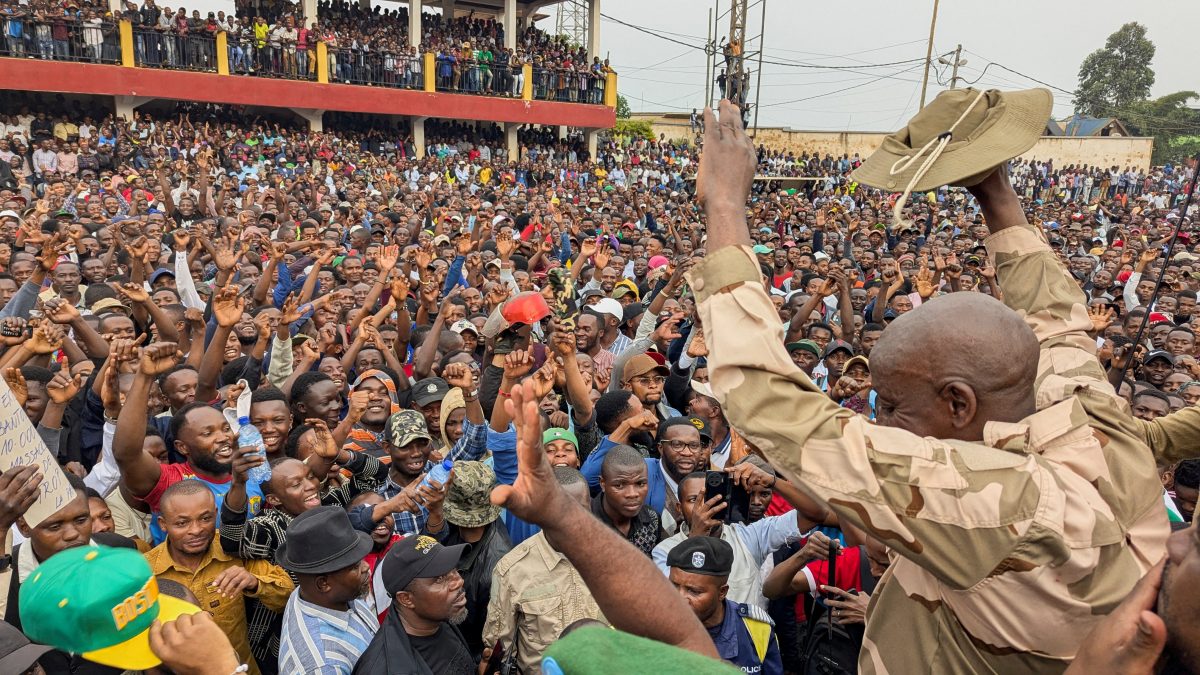On Tuesday, the Rwandan-backed M23 armed group in the Democratic Republic of Congo threatened to move on the provincial seat of Bukavu, alleging a “dangerously deteriorating” scenario, as Congo rejected a proposal for direct negotiations with rebels.
The takeover of Bukavu would constitute an unparalleled extension of territory under the M23’s control, as well as a further blow to Kinshasa’s authority in eastern Congo following the collapse of Goma, the region’s major city, in late January.
Further combat in South Kivu province would heighten worries of a larger conflict, given the presence of Burundian forces supporting Congo and rumours of additional Rwandan troops amassing at the border to help the M23.
The M23 had paused their march towards Bukavu, the capital of South Kivu province, after declaring a unilateral ceasefire that was followed by calls for an immediate and unconditional ceasefire from regional leaders.
The regional leaders also called for direct talks between President Felix Tshisekedi’s government and the M23 rebels.
Tshisekedi’s ruling UDPS party on Tuesday said Congo would not engage directly with the M23, reiterating any negotiation with the rebels must be done alongside other armed groups within a peace process led by the East African regional bloc.
The M23 have not made any significant progress since seizing the mining town of Nyabibwe last week, but heavy shelling was reported along the front line on Tuesday morning, rebel, military and local sources told Reuters.
Impact Shorts
More Shorts“The situation in Bukavu is deteriorating dangerously. Our compatriots are continually being killed and pillaged,” Lawrence Kanyuka, a spokesperson for a rebel alliance that includes M23, said in a post on X.
Bukavu and the strategic town of Kavumu, 35 km to the north, where the airport is located, are still under the control of the Congolese army.
“If these crimes persist, we will take our responsibilities to eradicate the threat at its source and protect our people,” Kanyuka said.
The security situation in South Kivu has been further complicated by cases of runaway Congolese soldiers looting villages and attacking civilians.
On Tuesday, a military court in Bukavu heard that 272 detained soldiers and government-allied militia members would be brought before the court for identification and to respond to various charges including looting and murder.
A Congo army spokesperson said a military commander in the region had led an operation that saw the arrest of undisciplined soldiers.
The rebels’ stop-start advance and the possibility of a battle for Bukavu have been stoking fears of a broader conflict with armies from regional countries pitted against each other, as seen in previous wars between 1996 and 2003.
The Congolese army, supported by allied militia groups and the Burundian army, faces likely opposition from the rebels and Rwandan troops, many more of whom have been gathering at Rwanda’s border with South Kivu, witnesses, military and diplomatic sources have said.
Rwanda has been accused by Congo, the United Nations, and several Western countries of supporting the rebels with thousands of its own troops and weapons. Rwanda insists it has taken mostly defensive positions to protect its borders and citizens.
The resurgence of the conflict in eastern Congo has killed thousands since early 2022 and displaced over one million.
The U.N. office for humanitarian affairs said on Tuesday that an uneasy calm had returned to Goma with a gradual return to activities.
It said thousands of civilians were leaving displacement sites around Goma to head elsewhere, after the rebels said on Sunday the sites should be vacated within 72 hours. The rebels later clarified that such moves should be voluntary.
The U.N. office added that aid groups had voiced concern that the unplanned dismantling of the displacement sites could lead to the loss of vital humanitarian infrastructure like water facilities and health centres.
)